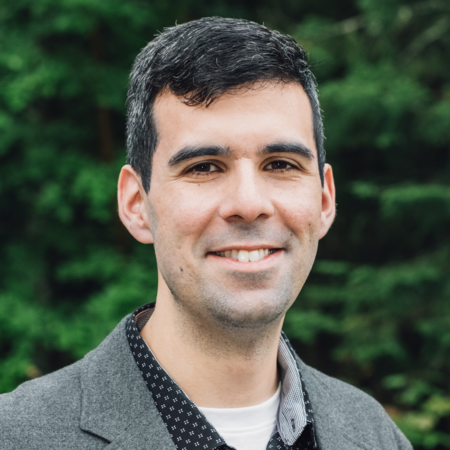David Hoyos

David Hoyos is a physicist addressing complex questions in viral and cancer evolution with the quantitative language of statistical mechanics and information theory.
He is a doctoral student in Dr. Benjamin Greenbaum’s laboratory in Computational Oncology at the Tri-Institutional Program in Computational Biology and Medicine at Weill Cornell Medicine, Memorial Sloan Kettering and Rockefeller University.
Hoyos received his bachelor’s in physics, with minors in applied and computational mathematics and biophysics from Princeton University. At Princeton, he founded a first-of-its-kind Undergraduate Teaching Assistant program for the physics department, where qualified undergraduate students could collaborate with graduate students and faculty to build physics curricula based on pedagogical research.
His research recasts the interpretation of complex biological phenomena in the language of statistical mechanics and information theory.
Hoyos recently derived a novel “free fitness” function for cancer mutations that is a direct analogy to “free energy” in statistical mechanics. This theoretical framework provides a mathematical description of the evolutionary trade-off between oncogenicity and immune surveillance impacting the most frequent mutations in cancer, such as TP53 and KRAS. This fundamental constraint in cancer evolution, that mutations with higher oncogenic potential also trigger a stronger immune response, can be exploited to enable the principled use of targeted therapies, such as immunotherapy, against specific cancer mutations.
Hoyos also developed an algorithm that calculates the “structural information distance” between three-dimensional protein structures utilizing the information-theoretic concept of perplexity in a recent paper describing the structure of the endonuclease/retrotransposon oncogenic protein encoded by ORF2 in the retrotransposon LINE-1. The perplexity between two proteins estimates the uncertainty of correctly guessing the structure of one protein while knowing the structure of the other protein, given constraints determined by nature. This lays a foundation to quantify structural and functional transitions under a unified, computable probabilistic language.
He has participated in multiple conferences, including the “Prospects in Theoretical Physics” at the Institute for Advanced Study and the Cancer Convergence Educational Network, a partnership between the National Science Foundation and Stand Up to Cancer. Hoyos has been privileged to receive excellent mentorship, and he is passionate about mentoring budding scientists himself. He is active in outreach efforts and research with the Li-Fraumeni Syndrome Association. In his free time, Hoyos enjoys practicing the martial arts, as well as biking.
Graduate Studies
Undergraduate Studies
Related News
